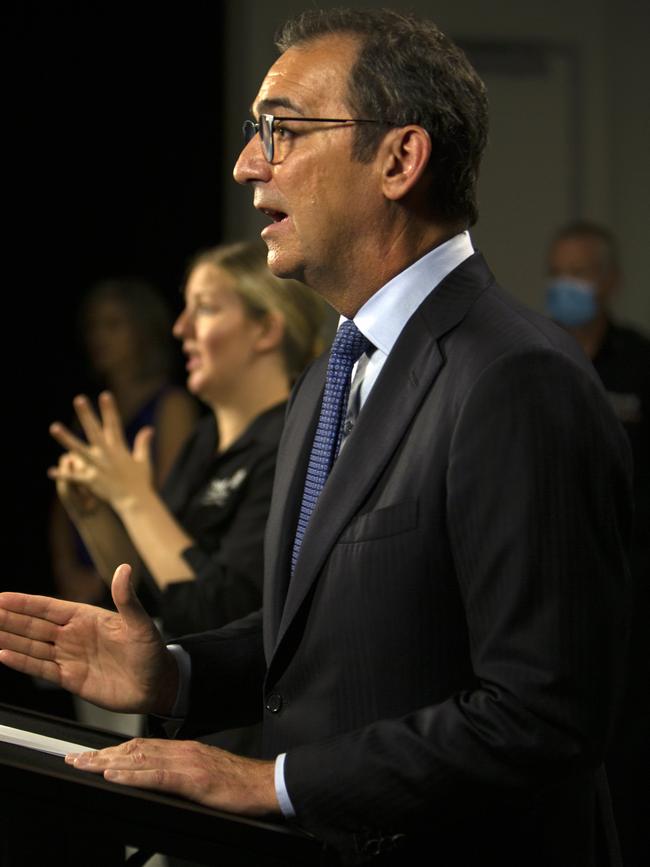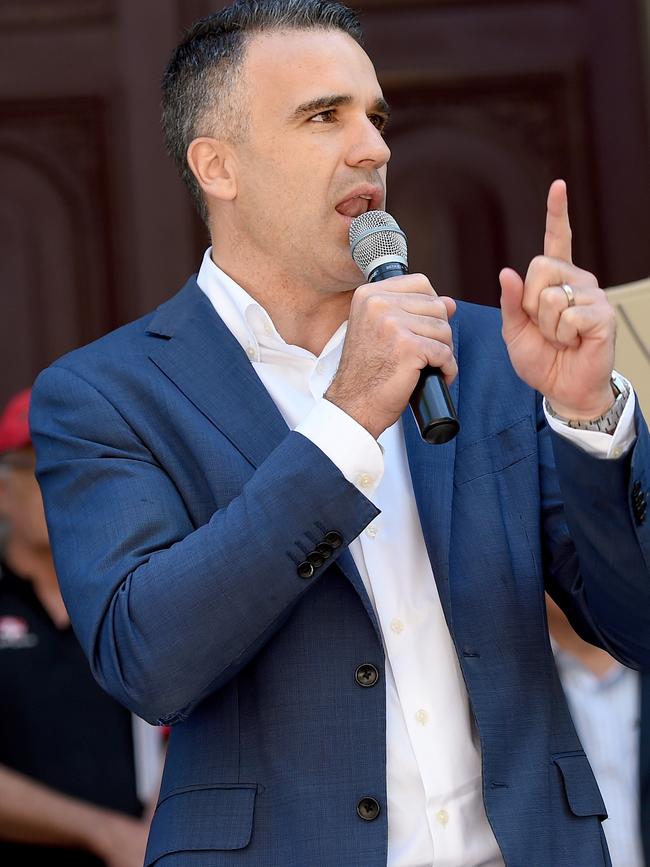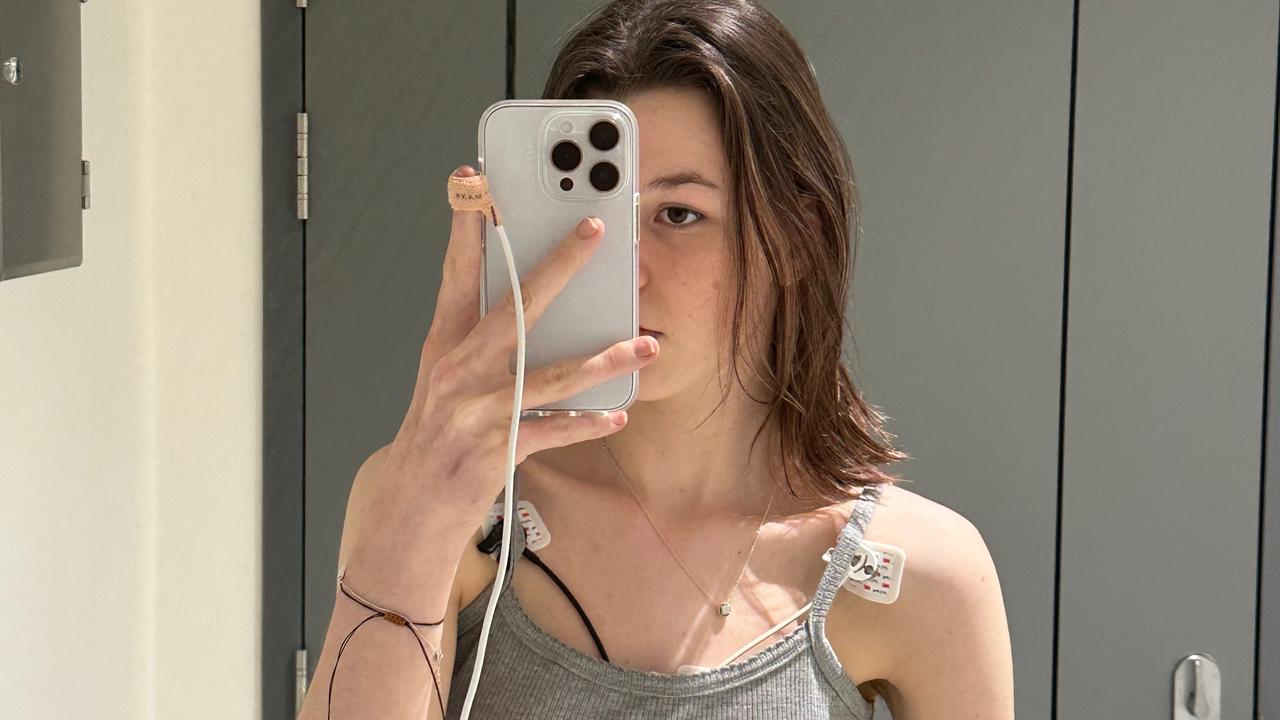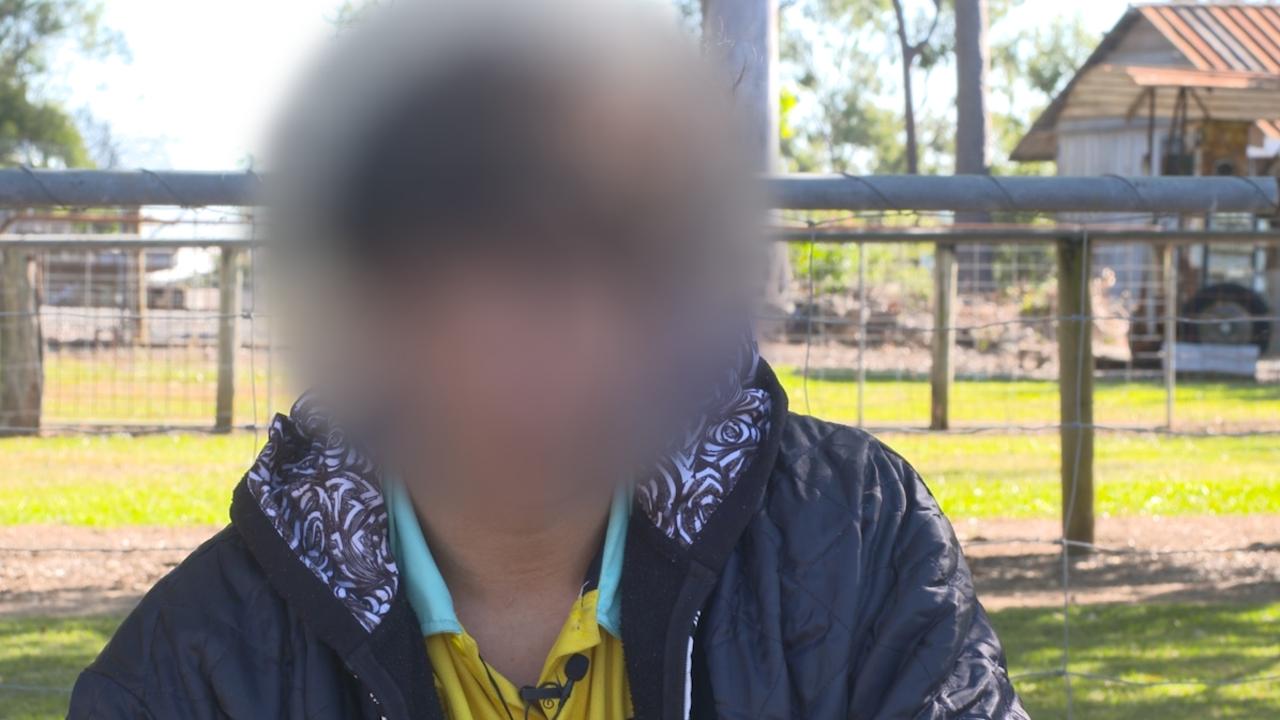Labor is ‘pushing fear and division’ by calling for end to medi-hotels, says SA Premier Steven Marshall
Premier Steven Marshall has lashed Labor over its call to end medi-hotels and repatriation flights.
Coronavirus
Don't miss out on the headlines from Coronavirus. Followed categories will be added to My News.
Premier Steven Marshall has accused the SA Labor Party of “pushing fear and division” by calling for the indefinite suspension of repatriation flights and the medi-hotel program.
It comes as SA Health Chief Executive Chris McGowan asks the Australian Health Protection Committee to review hotel quarantine guidelines.
Mr Marshall said he was “very disappointed” with Opposition Leader Peter Malinauskas after he wrote to him and Prime Minister Scott Morrison asking for an urgent review of coronavirus quarantine options.
Mr Malinauskas said international arrivals and medi-hotel operations should be immediately and indefinitely suspended until a safer option was found because the current medi-hotel system – which houses infected people in city hotels manned by private security guards – was not safe.
He did not rule out supporting plans to process overseas arrivals at Woomera or on Christmas Island.
The State Government has already announced a suspension of international arrivals until December 1.
Mr Marshall said “from a logistics point of view, it makes no sense whatsoever”.
“Quite frankly I find disgusting that Peter Malinauskas thinks that South Australians returning from overseas, or those returning from Victoria to do their quarantine, should be put in a detention-style quarantine on Christmas Island or Woomera,” he said.


“I think it undermines the public health experts that we have here in South Australia at a time when South Australians have never been more united.
“I think this is just a blatant attempt, quite frankly, at pushing fear and division.”
Mr Marshall has asked Mr Morrison to stop repatriation flights until December 1.
He also revealed that SA Health Boss Chris McGowen had written to the AHPC “asking them to immediately review the hotel quarantine guidelines”.
“We did change our arrangements with medi-hotels on Monday when we became the first jurisdiction in Australia to have mandatory seven day testing,” he said.
SA Health Public Health Officer Nicola Spurrier said she was “quite comfortable with having the medi-hotels as they currently stand”.
“Over the period of time we’ve had medi-hotels, we’ve had very, very few cases where we’ve had people becoming infected within the medi-hotel system,” she said.
“What has happened, what has changed, is that the risk has increased and that’s because there are very high rates of disease now in many of the countries people are coming from, so that means we do need to continue to look at the system that we have here...and that is absolutely what we have been doing here in South Australia.”
Professor Spurrier said one of the problems with moving the supervised quarantine system out of the city and into less populated areas of the state “also means we could potentially be co-locating this risk near Aboriginal communities and that is really an unacceptable risk in my mind”.
Moving medi-hotels to remote locations in SA has been backed by local experts.
UniSA epidemiologist Professor Adrian Esterman questioned why SA continued to operate high-risk quarantine hotels in the city when it was safer to quarantine people away from communities.


